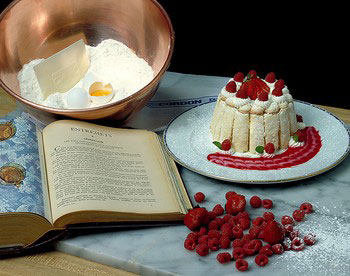 |
 |
Food: as a child, Colette had cider and wine for tea. Today we'd be shocked
[ILLUSTRATION OMITTED] Colette, tutelary goddess for hungry women, wrote a lot about tea, that little casse-croute meal for active people. Growing up in the country, she put her snacks into her overall pocket before racing off to the woods and fields, to reappear hours later, having feasted on wild mushrooms and nuts. Her mother, Sido, would call her back home for proper meals. Colette once listed some of her favourite gouters. Tea did not mean only sweet things. She liked fresh bread "drowned" in new milk, followed by a large white pickled gherkin with a slice of bacon, the whole treat washed down with a cup of cider. Another menu featured a heel of bread, emptied of crumb, filled with fresh butter and raspberry jelly, half a litre of fresh milk and a bowl of white strawberries. Her third menu: a long, thick slice of bread spread with cold red beans cooked in wine sauce, followed by a handful of blackcurrants. Later, as a girl going on bicycle trips with friends, she carried sardine sandwiches (sardines sprinkled with lemon juice and mashed with butter), puff-pastry sausage rolls, apples and a gourd of white wine. These rustic feasts depended on the seasonal produce to hand. Today we might feel shocked that a child's tea should include cider and wine. You can imagine Colette shrugging impatiently. She recounts how the children, and indeed the women, coped with the long pauses between courses at country weddings. In between the soup, the fried rabbit, the veal with mushrooms, the roast chicken, the pumpkin tart, the chateau of nougat, they would dip sugar lumps into a glass of red wine, suck them until the sugar dissolved a little, then recommence. Gently, little by little, they got drunk. Then the women would untie their bonnet strings and open their dresses and fan themselves, saying, "Goodness, it's hot in here, the heat has gone to my head." Colette watched, sharp-eyed; then, overcome, slid down in her chair, under the table, and fell asleep. |
| © Copyright 2025 Yingsakfoodnetwork.com All rights reserved. Unauthorized duplication in part or whole strictly prohibited by international copyright law. |





